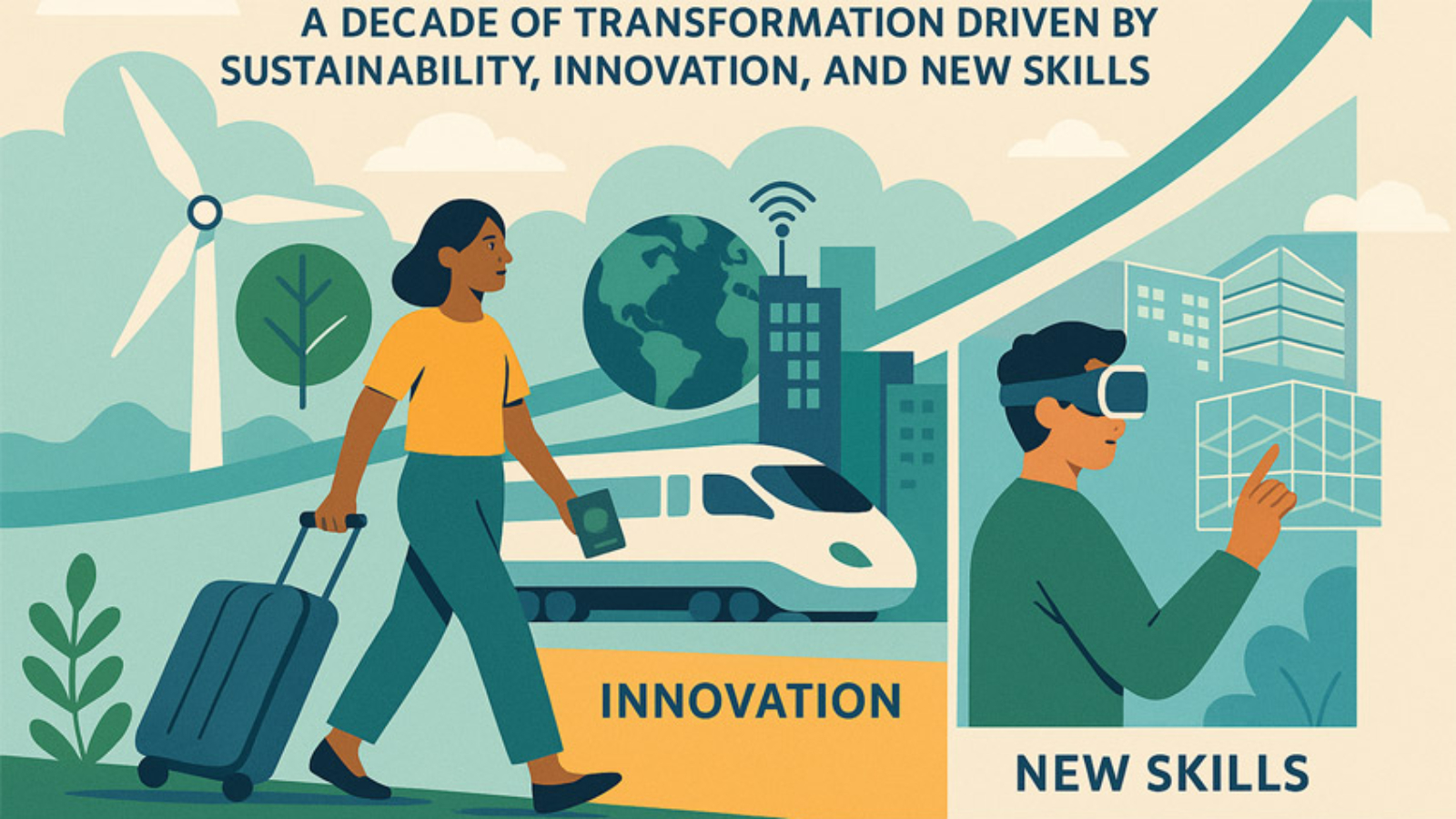The Italian tourism sector stands at the dawn of a new era. According to the report “A Journey into the Tourism of the Next Decade” by Randstad Research, the next ten years will bring radical change to how people travel, where they go, and what they expect from the experience. At the heart of this transformation lie three pillars: sustainability, technological innovation, and the emergence of new professional roles tailored to a more complex, conscious, and connected traveler.
Sustainable and Authentic Travel: A New Paradigm
In the post-pandemic world, travelers are increasingly motivated by a desire to reconnect with nature, local communities, and themselves. Mass tourism and high-impact travel models are giving way to slower, more meaningful experiences. The report underlines a growing demand for sustainable tourism, both in terms of environmental impact and social responsibility. This includes eco-friendly accommodations, carbon-neutral transportation, and experiences that respect local traditions and ecosystems.
Travelers now actively seek authenticity: they want to live like locals, discover hidden cultural gems, and contribute positively to the places they visit. The shift from “seeing” to “experiencing” is not just a trend — it’s a structural change in tourism behavior.
Technology as a Travel Companion
Digital transformation is revolutionizing the tourism industry, reshaping the way destinations are marketed, booked, and experienced. According to Randstad, tools like augmented reality (AR) and virtual reality (VR) are becoming central to pre-travel engagement, allowing users to preview locations or simulate experiences before they arrive.
Meanwhile, artificial intelligence and big data are enabling hyper-personalization. Travel platforms and agencies can now analyze preferences, past behaviors, and real-time data to tailor itineraries, recommend services, and even adjust prices dynamically. Smart tourism ecosystems — where sensors, apps, and IoT devices guide the traveler through seamless, immersive journeys — are set to become the norm in major cities and cultural hubs.
Emerging Professions: The New Faces of Tourism
As the sector evolves, so do the roles within it. Randstad outlines ten emerging professions expected to shape the industry in the coming years. These include:
- Destination Manager: Develops integrated strategies to promote and manage tourism at a territorial level.
- Sustainable Tourism Consultant: Designs low-impact, community-oriented experiences.
- Glamping Operator: Manages luxury outdoor accommodations tailored to comfort-conscious ecotourists.
- Workation Manager: Combines leisure and remote work, organizing digital-nomad-friendly stays.
- Virtual Travel Planner: Specializes in curating immersive digital travel experiences.
- Olfactory Tourism Designer: Creates itineraries based on sensory and scent experiences.
- Experiential Guide: Offers deep, culturally immersive tours beyond traditional sightseeing.
- Ecotourism Coordinator: Plans outdoor, nature-based experiences aligned with conservation principles.
These professions require a mix of digital literacy, sustainability know-how, emotional intelligence, and cross-cultural communication skills. Upskilling and reskilling will therefore become vital.
Education and Skills: The Competitive Edge
Italy’s tourism sector employs around 1.7 million people, many in medium-skilled roles. But to stay globally competitive, continuous training is essential. The report emphasizes the need for stronger digital competencies, language skills, and project management abilities, especially in small and medium-sized enterprises (SMEs), which make up the backbone of Italian tourism.
Public and private stakeholders are encouraged to collaborate on lifelong learning pathways, including vocational training, micro-credentials, and Erasmus-style mobility programs focused on the tourism workforce.
Conclusion
The coming decade will redefine what it means to travel — and to work in tourism. Those who embrace sustainability, harness innovation, and invest in talent development will thrive in an increasingly competitive landscape. The real journey, the report suggests, is not just one of kilometres, but of transformation — for the industry, the traveller, and the planet.


